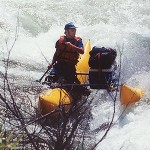Comments Reviews on theboatpeople.com Raft Cataraft Inflatable Kayak Products and Service › Forums › Environmental News › Organizations Denounce Nestlé’s New Human Rights Assessment as a Publicity Stunt
Tagged: Nestle drought bottled water
- This topic has 0 replies, 1 voice, and was last updated 9 years, 10 months ago by
 Lee Arbach TBP.
Lee Arbach TBP.
-
AuthorPosts
-
June 6, 2015 at 8:53 am #2613
 Lee Arbach TBPKeymaster
Lee Arbach TBPKeymasterOrganizations Denounce Nestlé’s New Human Rights Impact Assessment as a Public Relations Stunt
Joint statement by Blue Planet Project, FIVAS, Food & Water Watch, and Public Services International
Brussels and Ottawa — Nestlé’s new human rights assessment, launched at the UN Forum on Business and Human Rights last week, is full of holes say labour and civil society organizations, including the Blue Planet Project, FIVAS, Food & Water Watch, and Public Services International.
“The analysis is fundamentally flawed because it is a selective examination of corporate policy rather than corporate practice,” says Maude Barlow, founder of the Blue Planet Project and chairperson of the Council of Canadians and Food & Water Watch.
Nestlé’s “Creating Shared Value” program is touted in the report as a strategy to address the needs of impacted communities, yet as Barlow notes in her newly released book, Blue Future, there are significant discrepancies between Nestlé’s so-called values and its actual practice.
“One key Nestlé ‘shared value’ is the need for conservation of the world’s water,” says Barlow. “But this has clearly not been transmitted to Nestlé Waters Canada, which recently appealed a decision by the Ontario Ministry of the Environment to impose mandatory reductions on water takings in times of severe drought.”
Furthermore, although the assessment involves the Danish Institute for Human Rights, it is a far cry from an independent analysis on the human rights impacts of Nestlé’s activities. The parameters for the assessment were set by Nestlé and involved a limited set of criteria that overlooked key areas including the human right to water. In addition, the bulk of the assessment was carried out by Nestlé field staff and final data vetted by Nestlé headquarters and executives in the countries where operations were evaluated.
“The failure to examine Nestlé’s track record on the human right to water is not surprising given recent statements by its chair Peter Brabeck challenging the human right to water,” says Wenonah Hauter, Executive Director of Food & Water Watch. The company famously declared at the 2000 World Water Forum in the Netherlands that water should be defined as a need—not as a human right.
In 2012, among the numerous grievances against Nestlé in this area, the award-winning film Bottled Life documented the conflict between Nestlé and the community of Bhati Dilwan, a village in Pakistan where local leaders and members of the community have accused Nestlé of draining groundwater resources to produce its Pure Life bottled water. A recent SumOfUs petition denouncing Nestlé’s activities in Pakistan received over 346,000 signatures.
Barlow also points out that while the report commends Nestlé for providing human rights training for security personnel in Colombia, it makes no mention of the fact that in 2009 a number of labour and human rights organizations launched a campaign demanding that Nestlé be expelled from the UN Global Compact for trade-union busting and child labour in Colombia.
In November 2013, Colombian trade unionist Oscar Lopez Trivino became the fifteenth Nestlé worker to be assassinated by a paramilitary organization while many of his fellow workers were in the midst of a hunger strike protesting the corporation’s refusal to hear their grievances.
The organizations also denounce the growing role of Nestlé in shaping public policy through its involvement in multi-stakeholder bodies including the 2030 Water Resources Group, the UN Global Compact and the Global Water Partnership.
“Nestlé has used its privileged position to promote greater private access to water resources and public water and sanitation services despite growing opposition to corporate control of water around the world,” says David Boys of the global union federation Public Services International.
Nestlé is currently the leading supplier of the world’s bottled water, including such brands as Perrier and San Pellegrino.
“Given the selective focus, limited scope and glaring omissions, the report cannot be seen as anything more than the company’s latest public relations stunt,” says Jorgen Magdahl of the Norwegian NGO FIVAS.
For more information, please contact:
Meera Karunananthan, Blue Planet Project, 613-355-2100, meera@canadians.org
Gabriella Zanzanaini, Food & Water Europe, +32 488 409 662, gzanzanaini@fweurope.org
-
AuthorPosts
- You must be logged in to reply to this topic.
- Click to share on Facebook (Opens in new window)
- Click to share on Twitter (Opens in new window)
- Click to share on LinkedIn (Opens in new window)
- Click to share on Pinterest (Opens in new window)
- Click to share on Tumblr (Opens in new window)
- Click to share on Reddit (Opens in new window)
- Click to share on Pocket (Opens in new window)
